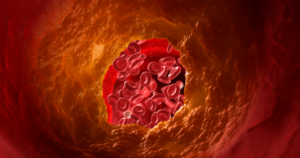 Cholesterol is beneficial to the body – it helps in metabolism, the fabrication of the membrane structure, and in the synthesis of bile. However, cholesterol levels should be less than 200mg/dl. Any levels higher than this are either borderline high or very high. High cholesterol arises mainly from lifestyle choices – the foods you consume and how active you are. High blood cholesterol might clog the arteries, which leads to high blood pressure or heart attacks. Featured below are diets that can assist in lowering cholesterol.
Cholesterol is beneficial to the body – it helps in metabolism, the fabrication of the membrane structure, and in the synthesis of bile. However, cholesterol levels should be less than 200mg/dl. Any levels higher than this are either borderline high or very high. High cholesterol arises mainly from lifestyle choices – the foods you consume and how active you are. High blood cholesterol might clog the arteries, which leads to high blood pressure or heart attacks. Featured below are diets that can assist in lowering cholesterol.
DASH Diet
The DASH diet was initially developed for hypertension. Studies have, however, shown its role in managing high cholesterol and diabetes. This diet helps lower LDL (Low-Density Lipoprotein) cholesterol. LDL cholesterol is responsible for the blocking of arteries.
The dash diet aims to reduce sodium and saturated fats intake. It encourages the consumption of micronutrients beneficial to the body, for instance, potassium and magnesium. This diet recommends a sodium intake lower than 1500mg and a magnesium intake of up to 500mg in the diet. Calcium consumption in this diet should be approximately 1250mg, while potassium ought to be 4700mg. Your daily meals should be balanced, with carbohydrates, proteins, and fats within the US dietary guidelines.
To achieve the dash diet guidelines, you can up your intake of fruits and vegetables to four or five servings and your fats and oils at two to three servings per day. You should consume more whole grains and switch to low or non-fat dairy. Try to keep your dairy intake at two to three servings per day. You can consult the nutrient label on the food packages when calculating the servings for the dash diet. For accurate measurements on food servings, you can go to choosemyplate.gov.
Mediterranean Diet
The Mediterranean diet derives its name and origin from the countries near the Mediterranean Sea, like Greece and Italy. Some research studies show that this diet plays a part in preventing diabetes and stroke. Its role in lowering cholesterol is, however, more profound.
The Mediterranean diet aims to increase the consumption of fresh fruits, vegetables, and lean meats. This diet recommends you consume more unsaturated fats. Unsaturated fats help in the synthesis of HDL (High-Density Lipoprotein) cholesterol, which is “the good cholesterol”. HDL binds with cholesterol and transports it from the blood to the liver. In the liver, cholesterol is used in bile production. The Mediterranean diet also discourages the consumption of animal products as they typically have high levels of saturated fats.
According to the Mediterranean diet, you should consume foods rich in monounsaturated fats like nuts and oils. Limit your intake of dairy products and reduce your consumption of poultry and red meat. You can switch your meat and poultry consumption to fish rich in omega-3 fatty acids like salmon. Omega-3 helps lower LDL cholesterol. You should, however, consume the fats and fish in moderation. They are high in calories and might cause weight gain.
TLC Diet
The National Institute of Health developed the TLC program to lower cholesterol by encouraging lifestyle changes in diet and physical activity. Part of this program involves the TLC diet. The TLC diet works hand in hand with medication. Cholesterol-reducing drugs help lower cholesterol to a healthy range, while the TLC diet complements the drugs and helps maintain cholesterol levels below 200mg/dl.
The TLC diet aims to increase the consumption of fruits, vegetables, and soluble fibers. Soluble fibers inhibit cholesterol absorption into the blood and trigger a sense of fullness, which signals you to stop eating. This mechanism helps in weight maintenance because soluble fibers are not calorically dense. The TLC diet also discourages the consumption of saturated fats and trans fats. Saturated fats should account for less than 7% of daily calories, while trans fats should be less than 2.5% in the diet.
The TLC diet recommends that you consume two to three servings of low fat or non-fat dairy products per day. You should also increase your soluble fiber intake to five to ten grams and maintain your fruits and vegetable intake at five servings per day. Reduce your consumption of eggs because of the yolk, which has high levels of saturated fats. You can get creative and combine three egg whites with one egg yolk. Limit your consumption of animal meat, though you can just remove the skin in the case of poultry.
Keep track of your cholesterol levels. High cholesterol has no signs and symptoms and most people never know that their cholesterol levels until they get tested. A majority become aware after assessing their high blood pressure or surviving a heart attack. A good tip would be to go for regular checkups as you follow the diet plans and always take any medication recommended by your doctor. Once you manage to attain the healthy range, you can go for a checkup once or twice per year.